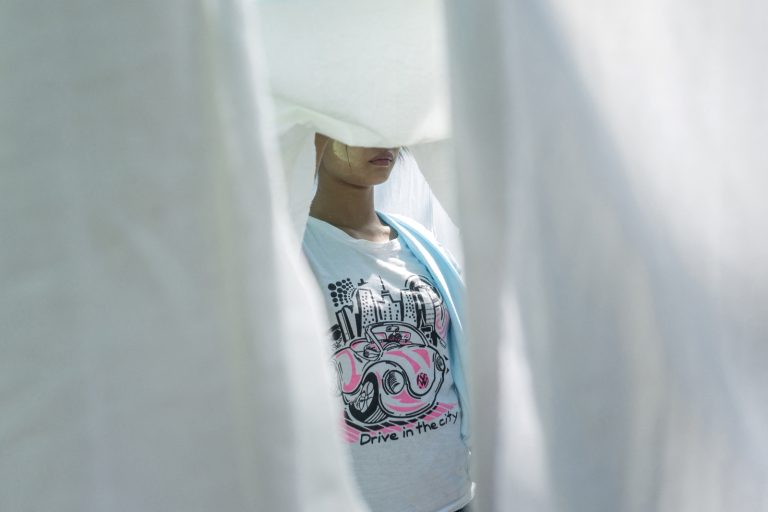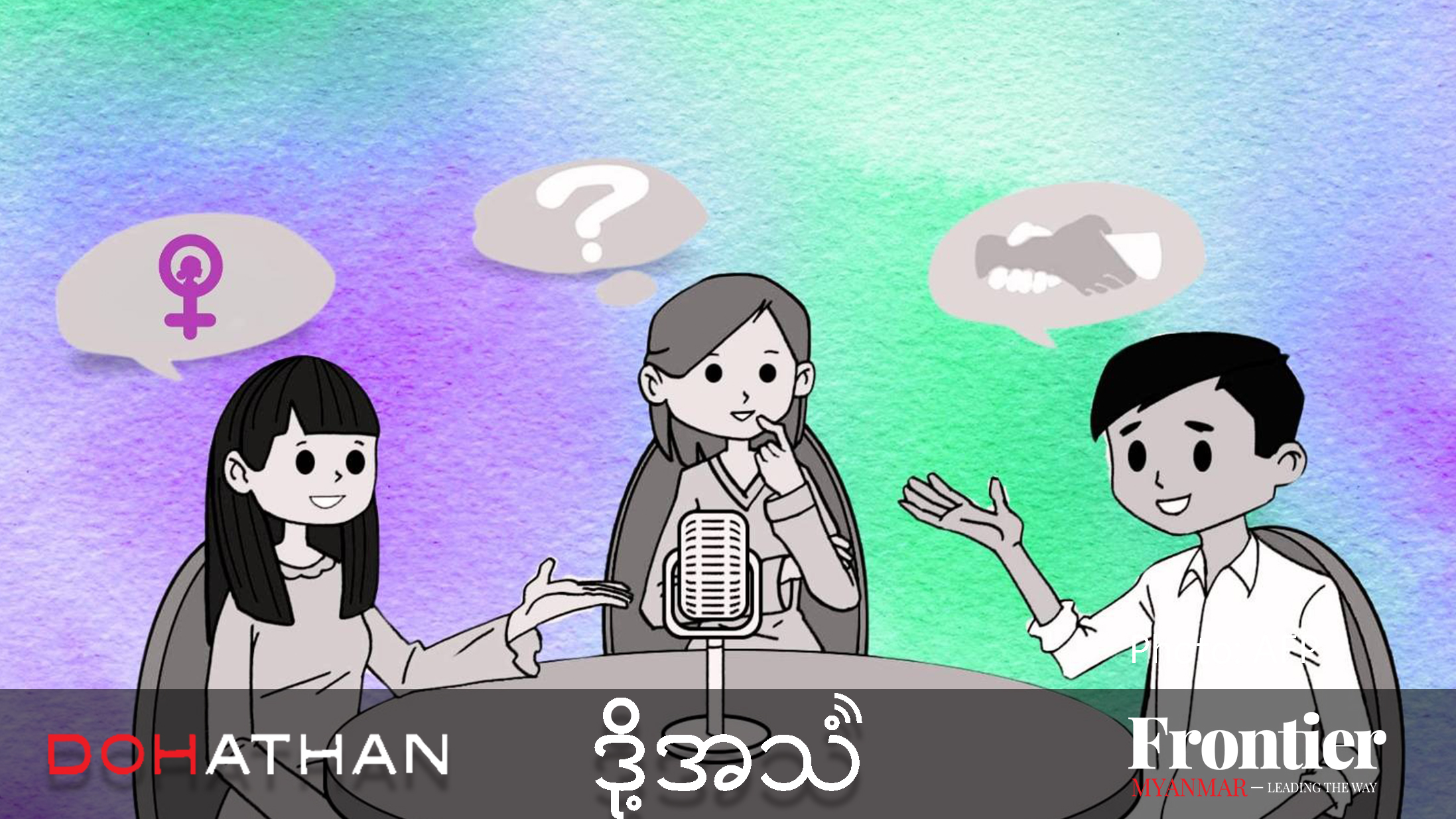A matrix of social issues is swelling the ranks of Myanmar’s abandoned children.
By PYAE SONE AUNG | FRONTIER
Nowhere is being a single mother easy. But it is harder in Myanmar, perhaps, than in most places, where a working single mother can expect little to no government support, and disproportionate blame is placed on women for out-of-wedlock births.
Single motherhood is often seen as a mark of shame in a traditional and patriarchal society steeped in mythologies around female purity. Even when raped or forced into marriage, a woman must, the saying goes, “trade her life for her shame.” It’s reinforced in popular culture and religious discourse: the burden and blame for an unplanned pregnancy lies squarely on the woman.
“It almost broke me completely,” said Ma Su Myat Thandar, 28, at her Thaketa Township apartment, in eastern Yangon. She greeted Frontier at the door in mid-December, balancing her 10-month-old son on her hip, her hair unkempt and her eyes hollowed by sleep deprivation. “There were nights I cried my eyes out, doubted myself – wanted to kill myself,” she said of her decision to raise the child.
Like many urban women her age, Su Myat Thandar slept with her boyfriend before they were married. The first time she became pregnant, he persuaded her to have an abortion – a common but controversial option. But the second time, she decided to keep it.
“I was being responsible and using contraception, but I got pregnant twice, so I thought: it’s God’s will that I have a child,” the Muslim woman said. “I was in my late twenties and worried that if I had a second abortion, I might not be able to conceive again.” She was quickly abandoned by her partner.
Throughout a 30-minute interview with Frontier, Su Myat Thandar’s baby pulled at her frazzled hair and played with her glasses, competing for her attention. On the floor, a latticework of parenting books and baby toys overlaid thick rubber mats, in place to cushion the falls of the child’s first steps.
Su Myat Thandar receives no government support. When the baby is asleep, she works on her laptop as a trainer with the Myanmar ICT for Development Organization (MIDO), a civil society group that uses ICT to promote development and peace. With her roughly K400,000 a month, she is unable to afford a maid or nanny.
While she decided to both give birth to and raise her child, her ordeal illustrates some of the agonising choices a woman must face when unplanned pregnancies occur in Myanmar – options that lead many down a far different course. Each year, according to figures from the Department of Social Welfare, tens of thousands of infants are abandoned at hospitals, left in rubbish bins or dropped off at monasteries or the front doors of homes. Many but not all wind up at a patchwork of non-profits, monasteries, and private and government-run nurseries and orphanages.
Orphanages in Myanmar commonly house abandoned children alongside those whose parents have died, and the Burmese word for orphan, mi ba me, refers to both types.
A large proportion of the infants that arrive at the orphanage attached to Yellow Generation Wave monastery, in Yangon Region’s northernmost Taikkyi Township, arrive in December.
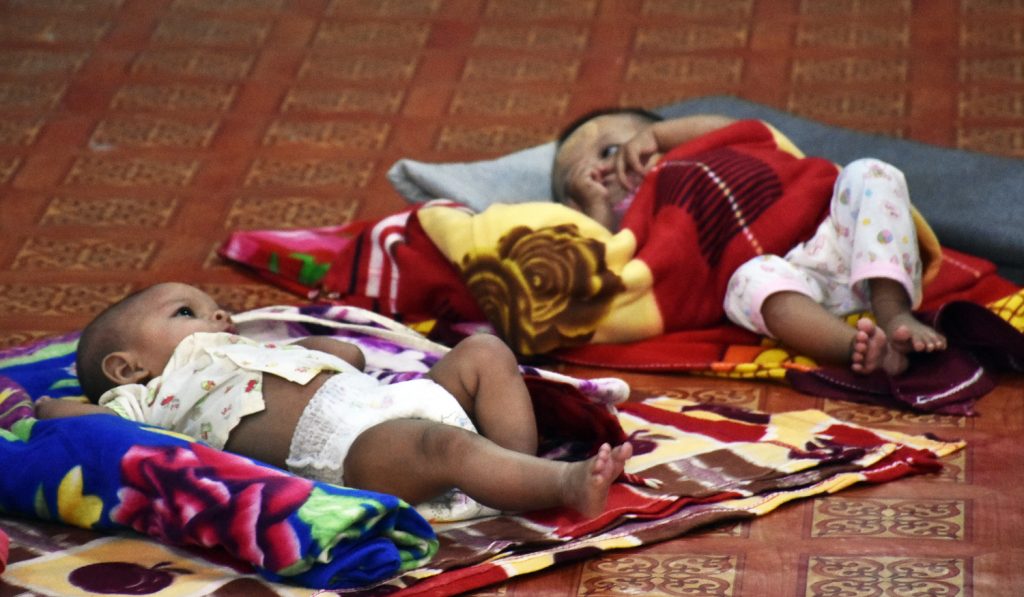
“You see, Valentine’s Day, in February, comes about nine months prior to now,” U Tay Zainda, the Buddhist monastery’s abbot, told Frontier on December 12.
He blames the annual surge on couples increasingly “living together” – by which he means having unprotected sex – before marriage. But a matrix of social issues – including entrenched poverty, the scorn traditional Myanmar society heaps onto unwed mothers, and a lack of sex education – all contribute to the growing problem.
Tay Zainda, whose monastery currently cares for more than 200 abandoned children, is quick to blame promiscuous youth. Traditionally, courtships lasted three years, reflected in the idiom thone hnit thone moe, or ”three years, three rainy seasons”. Then, before marriage, a man had to seek approval from their lover’s parents, and was only given it if he met their expectations for status and wealth. Sex was permitted only after marriage.
For better or worse, such traditional courtship is largely a thing of the past, especially in urban areas, where many youths become sexually active in their teens – evidenced by a proliferation of hotel “staycation” packages now on offer around Valentine’s Day in Yangon.
Add to this a dearth of modern sex education. The topic has been a part of extracurricular programmes since at least 1998, but because it is so taboo it is often glossed over. In 2016, sex ed was added to high schools’ “life skills” core curriculum but has only gradually been implemented, often with pushback from sections of the public. When extracts of a Grade 10 (ages 15 and 16) sex ed textbook reached social media before the classroom at the start of the 2020 school year, the earnest depictions of sexual relations in it inspired waves of outrage among parents and Buddhist monks. For most youth, contraception remains a foreign concept.
“I hardly ever used a condom,” said Ko Paing Paing, a 26-year-old resident of North Okkalapa Township in northern Yangon, who’s then-girlfriend became pregnant in 2018, when they were university students. “However thin [a condom] is, it feels like we’re a world apart,” he said, parroting a popular phrase among young Myanmar men. “It was never a problem – until she got pregnant.”
Together, they decided to abort the pregnancy. She’d felt enormous angst and pressure – economic, social and familial – both to hide the pregnancy and not to give birth to the child, but also not to abort. “It was hell,” Paing Paing said. She is still traumatised by the experience.
Although clandestine abortion is not a rare choice for young, unmarried women, it can put their lives at risk. It’s more common in the early stages of pregnancy, when tablets that induce abortion can be taken. But if that fails, couples must discreetly arrange a surgical termination, before friends and parents take note of a swelling paunch. Such was the case with Paing Paing and his girlfriend.
“She was crying all the time [from the pregnancy through to the abortion, at six weeks],” he said.
After pills had failed them, they scoured their connections to find a doctor who would do it in secrecy. In the end they found one who could offer relative safety, and two years later, her physical health remains intact. But for the poor and for those without connections, options are far riskier.
Religious doctrine and the attendant social stigma are not the only reasons to be secretive: abortion is illegal in Myanmar unless the mother’s life is at risk, and any person who performs it can face up to 10 years in prison and a fine.
When making these decisions, the overwhelming majority of the population seeks refuge in Buddhism, the first precept of which enjoins believers to abstain from taking any form of life. There is therefore little support for moves to amend laws prohibiting abortion – or suicide, for that matter.
Figures released by the Ministry of Social Welfare, Relief and Resettlement for 2018 show that about 280 private orphanages, which includes monasteries, were caring for more than 36,000 orphaned or abandoned children, and seven government-run orphanages housed more than 600. Since the beginning of 2019, the Ministry of Labour, Migration and Population says it has issued 4,370 Citizenship Scrutiny Cards to orphaned or abandoned children between 11 and 18 years old and 122 to those above 18.
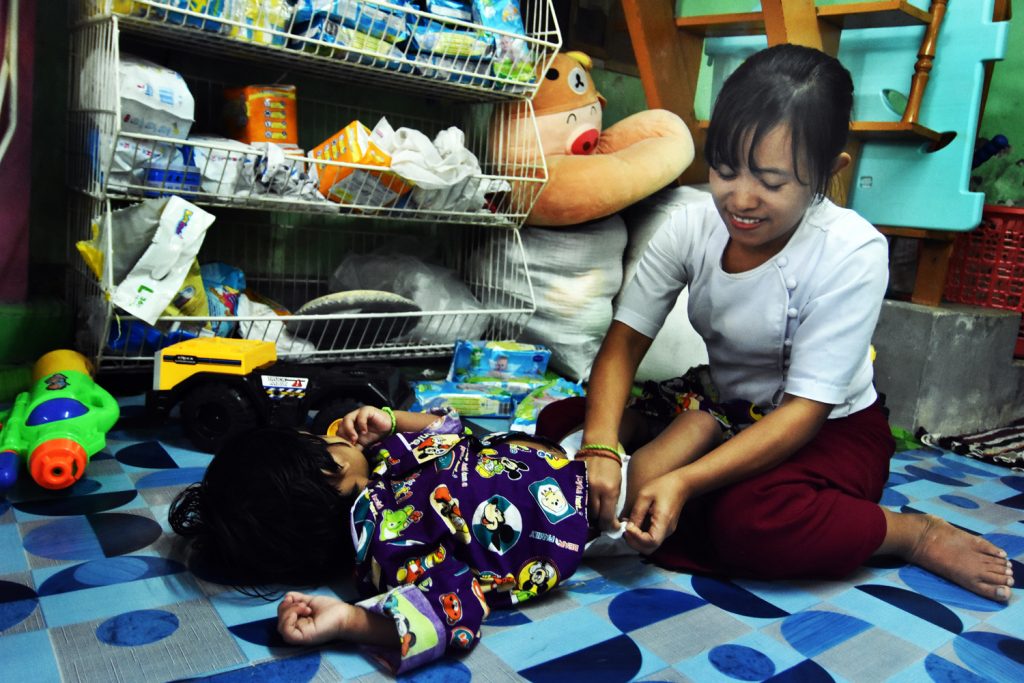
Most often, the responsibility of establishing of new orphanages falls to monks. The first Yellow Wave Generation monastery was founded in Mandalay in 2012 by a group of monks who wanted to do charity work and only later turned to caring for the country’s abandoned children. It has since grown into a foundation that includes a Nay Pyi Taw headquarters and 28 affiliated monasteries throughout the country – including 16 orphanages that house about 1,000 children – and two Dhamma centres.
Its Taikkyi orphanage, in Thanat Chaung village, is about three hours drive from downtown Yangon. Since its founding eight years ago it has expanded from one acre of bamboo structures to about four acres with modern, two-storey apartments, able to house more than 200 children, from newborns to three-year-olds.
Some were abandoned at bus stops and pagodas, others at hospitals just after birth. “Parents who are stressed by economic hardship abandon their child because they think it will be better off with a wealthy family or placed with an orphanage for adoption,” Tay Zainda said.
He and four other monks are the de facto legal guardians of children at the Taikkyi orphanage, which employs 19 nannies. During Frontier’s visit, three were caring for 29 infants aged under one year. Volunteer doctors also pay occasional visits. It seemed an inadequate workforce to care for so many infants. Managing a monastery-orphanage with more than 200 children requires strict rules and regulations, and tight schedules for when and how to eat, sleep, learn, play and pray. And many of the children suffer from psychological, or even physical, trauma. Tay Zainda said one boy who was sent to the monastery when he was two at first refused to be washed for days. “Later, we found out that his stepfather used to torture him by repeatedly submerging him under water, nearly drowning him, and that he was terrified of water,” he said. Many children there also suffer from skin conditions worsened by overcrowding.
Other children wind up at better-funded orphanages, such as that established by actress Khine Hnin Wai in 2018 in North Dagon Township, on the northern outskirts of Yangon. The Khine Hnin Wai Children’s Home currently houses 39 children aged two or below, five of whom were the result of child rape. Several of the others were abandoned by young single mothers.
“The mothers were just children themselves [when they gave birth], and were not well taken care of when they were pregnant; some of the babies were born with [physical] defects,” Khine Hnin Wai told Frontier.
Her celebrity attracts other public figures, who come to take selfies and offer donations. When Frontier paid a half-hour visit on December 14, two separate donors dropped in to give.
The home has 16 permanent caregivers. Children sleep in a room 6.1 metres (20 feet) long and 4.5m (15 feet) wide, divided into sections with plastic sheets for infants and for girls and boys one year and older. A few newly-arrived newborns slept peacefully in their cots when Frontier visited, while nannies rocked infants in their arms. The children, in matching pyjamas, appeared happy and healthy.
The Department of Social Welfare operates a residential nursery in Yangon’s inner Bahan Township, as well as in the cities Mandalay, Magway, Sittwe, Pathein, Mawlamyine and Kengtung – each built to accommodate 100 children – and they are currently building another in Nay Pyi Taw, though spokespersons could not say when they expect it to open.
The seven residential nurseries house a total of 625 children aged 10 and below, who are admitted to one of 11 vocational training schools after finishing primary school, unless they’re adopted beforehand in line with Myanmar’s Child Law. But need is outpacing resources – once the Nay Pyi Taw orphanage opens, projected capacity will be just 800, in a nation with tens of thousands of orphaned or abandoned children, and some of the nurseries are overfull.
“We have a total of 128 children but a budget for just 100,” Daw Khine Tweh Oo, head of the Shwe Gone Daing residential nursery in Bahan, told Frontier.
The department’s nurseries only accept abandoned infants that are formally deemed to need state care – mostly those sent from hospitals and clinics. If a baby is abandoned at a bus stop or front door, or found in a rubbish bin, they can be recommended for state care by local police and ward administrators, but only after a DSW case manager reports being unable to identify or locate the parents.
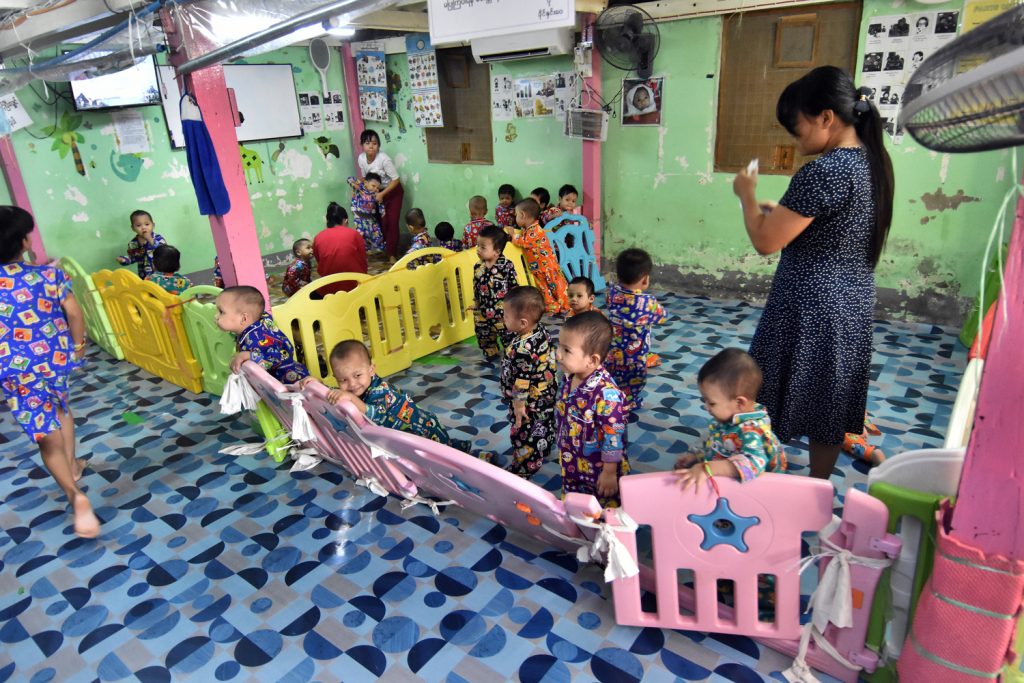
“We cannot just accept every baby,” Khine Tweh Oo said. “What if the parents show up and accuse us of stealing their children?”
“To a varying degree, every orphan [or abandoned child] has psychological issues to work through – that’s one reason why every child needs and deserves to live with their parents,” she added.
Khine Tweh Oo, like Tay Zainda, said there’s a strong connection between young people “living together” before marriage – of which she strongly disapproves – and the abandonment of infants.
“Modernity is good, but living together [out of wedlock] is irresponsible,” she told Frontier.



